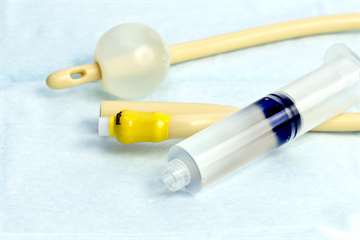Preparing for the appointment
5
'Dark trousers hide any leaks'• Bring along a couple of changes of close-fitting underwear and trousers/shorts in a dark colour (more discreet if leaks happen)
• Buy some packs of absorbent (incontinence) pads in both light and heavy absorbencies; you can buy these from most supermarkets and chemists.
• If you haven’t done so already, contact PCUK to request a surgery support pack which includes samples of pads and other advice. Or call their nurse helpline number 0800 0748383.
• Plan how to get to and from the appointment. If you are going to be travelling by car you could bring a disposable mat or towel to sit on in the car in case you leak on the way home.
• If you have to take public transport you may want to think about what to wear so you can hide any unexpected accidents/leaks. Perhaps think through where the toilets are on your way home so you are prepared if you need to go urgently.
3
Bring some books or other activities to help pass time whilst you wait. You will be encouraged to drink lots of fluids.Video Listen to a man describing what happened during his appointment [link]
Taking the catheter out
• Men are often anxious about this appointment and are concerned that it will be painful. But most men say that having the catheter removed is usually a simple, relatively painless procedure.
Video Hear men describing their experience of catheter removal [link]
2
• The nurse will attach a (needleless) syringe to the catheter port and take out the water that is inflating the balloon. Without the balloon to hold it in place in the bladder, the catheter will come out when pulled gently. Men often describe it as 'a slithery feeling' and say that it can sometimes 'sting'.
4
The lady that took the catheter out was talking to me all the time and when she took it out it was almost like the feeling when you are in a car and go over the bump of a bridge and you go whoa, and it wasn’t painful.• Prepare yourself, that after the catheter is removed, you may be unable to control your bladder, you could leak small or large amounts of urine. Don’t worry, this initial leakage is entirely normal and will improve over time. Video Hear a man describe his bladder leakage after catheter removal [link]
• Have the pads ready to put on and some tight-fitting underwear to hold the pad in place.
• The nurse will want to make sure that you can pass urine before you can go home, so after the catheter has been removed you will have to wait and have several drinks in the clinic/hospital until you have been to the toilet and passed urine normally.
• They may also scan your bladder with a small hand held machine, to make sure that there is no urine left in your bladder immediately after your pee.
• Do not compare yourself to other men at the appointment, they have had a different operation to you and everyone is affected differently.
• Very rarely there might be a problem and you find that you are unable to pass urine (you may hear this called ‘retention of urine’), you may need to have the catheter re-inserted for the time being. The medical team will make a plan to try removing the catheter again at a future date, you may hear this called a TWOC (Trial without catheter).
Anything else I need to know?
• When you get home if you struggle to pass urine or you experience any of the following, contact your GP or your medical team:
-
Weak urine stream
-
Straining to start the stream
-
Urine stream stops and starts
-
You cannot pass your water (urine) at all this is called 'retention of urine'